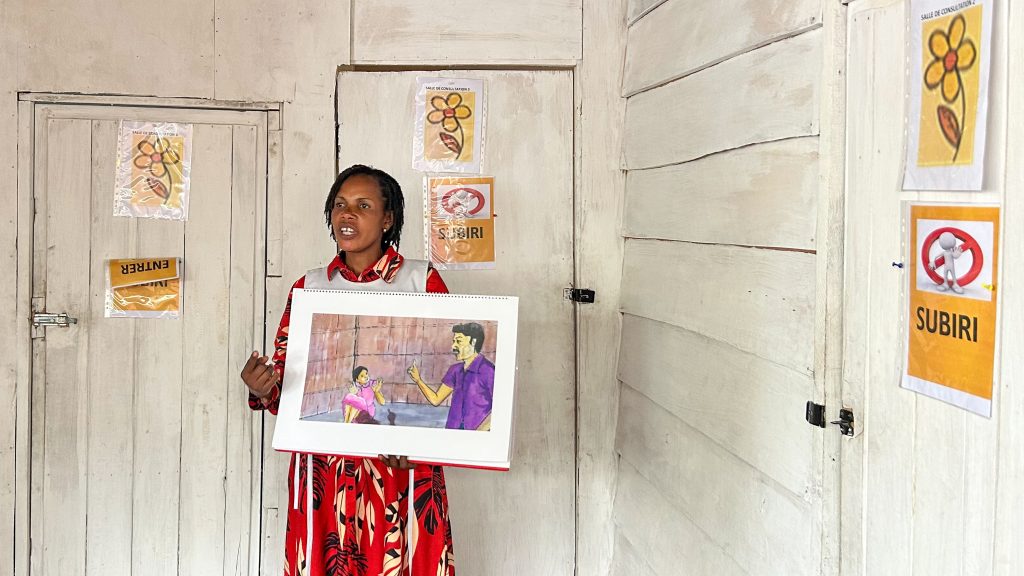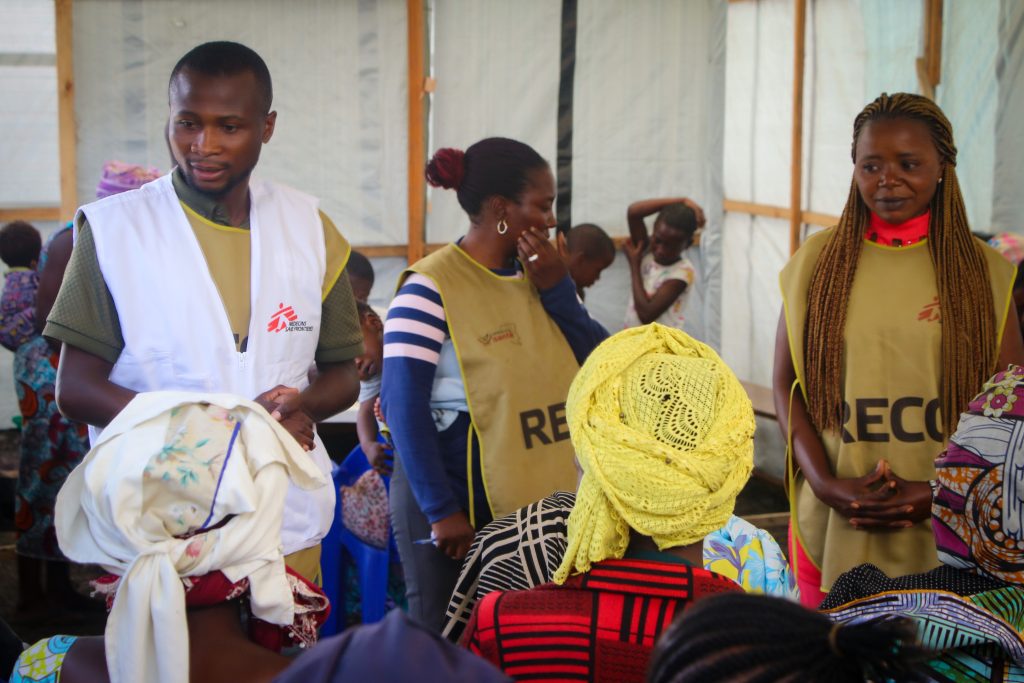Goma, 11 June 2025 – This year again, the number of victims and survivors of sexual violence treated by Médecins Sans Frontières/Doctors Without Borders (MSF) teams in eastern Democratic Republic of Congo (DRC) remains at an alarming level. MSF calls on all parties to the conflict to improve the safety of civilians and access to care for all. The medical humanitarian organization also urges the international community to maintain care for survivors as a priority, despite the current funding cuts.

As has been the case for years, most assaults reported by victims in 2025 were committed under the threat or force of a weapon by individuals who could not be identified due to the large numberof people carrying weapons—both civilian and military—the proliferation of weapons, andpersistent insecurity.
“Armed men came into our home at around 10.30 p.m.,” explains Nasha*, a woman who built a shelter in the courtyard of a school after she was displaced. “Some men were killed and some women, including me, were raped. Three men wanted to rape me in front of my husband and eight children. My husband resisted . . . they killed him.”
On the outskirts of Goma and Saké, many victims say they were attacked on the roads or in the fields.
In South Kivu, the situation is also worrying. In the territories of Kalehe and Uvira, MSF teams have treated nearly 700 victims and survivors of sexual violence since the beginning of 2025. Most of the accounts gathered describe acts committed at gunpoint.
“We suffered in the fields where we took refuge,” says a woman from a village in the hills around Kamanyola in South Kivu. “The armed men did not allow us to cross the villages. Some women were even raped when they tried to cross to reach health facilities.”
“The figures are underestimated because there are many obstacles to accessing care: fear of reprisal, stigma, geographical remoteness, and lack of treatment capacity in the facilities,” explains Luders Leriche, head of MSF medical activities in South Kivu. The higher or lower number of cases in certain areas reflects available treatment capacity rather than the scale of the problem in that region.

Essential services under threat
The impact of sexual violence—which mainly affects women, including children—has long been known and documented. The number of men who are victims, although much lower, is also a cause for concern. Beyond the health and psychological impact, the social consequences are devastating: family and social rejection, stigma, divorce, suicidal thoughts, and immense difficulty for survivors to continue living in the locations where they were assaulted.
The situation is even more worrying because access to treatment services is becoming increasingly difficult. Several health facilities in the provinces of North and South Kivu have already run out of medicines and kits they need to treat survivors of sexual violence.
In addition to supporting care for victims and survivors, MSF also calls on all stakeholders to do their utmost to further guarantee the protection of civilians and their access to health care.
MSF teams provide comprehensive medical and psychological care to survivors of sexual violence in Goma, Rutshuru, Masisi, and Walikale in North Kivu, and Kalehe and Uvira in South Kivu. Medical care includes medical and psychological support, preventative treatment against sexually transmitted infections, emergency contraception, vaccines, and safe abortion care. The most severe cases are referred to specialist hospitals.
*Names changed to protect patient anonymity.












